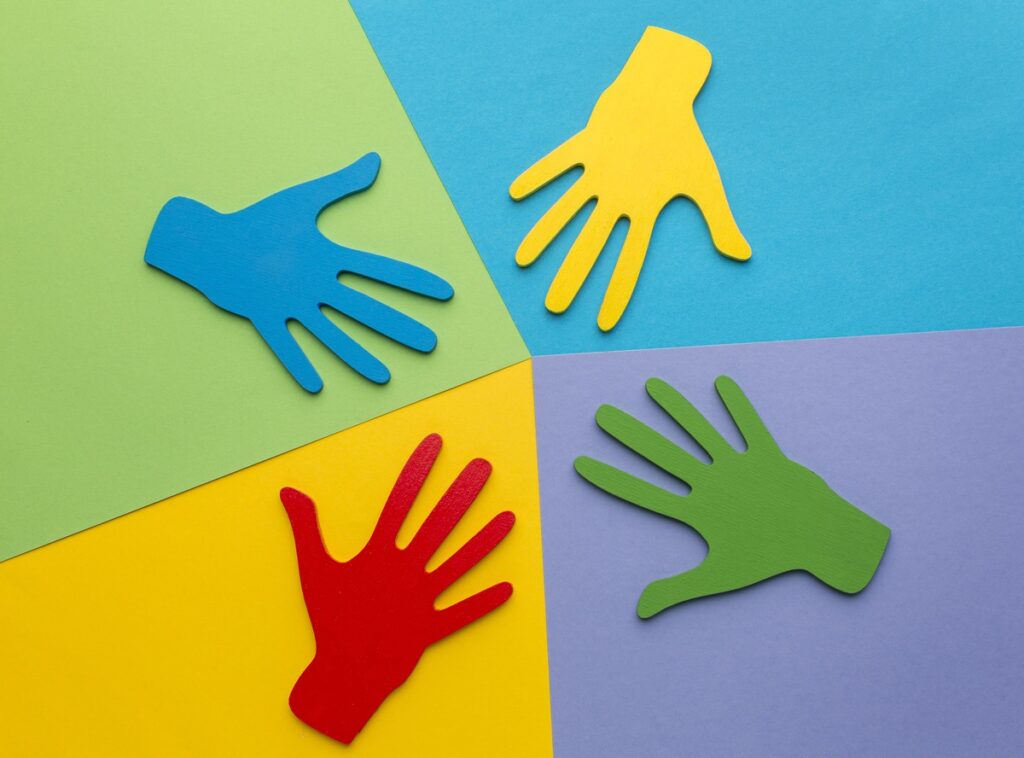

Quick Summary
Bachelors in Social Work (BSW) is a very empowering bachelor program for young adults as change agents. This is because more individuals worldwide require quality, skill-based social workers. Job growth in these positions is projected to be 12% from 2020 to 2030 compared with more general positions in an employment category.
BSW course details often include subjects like human behavior, social policies, community development, and counselling, equipping students with the skills needed to make a positive impact.
A BSW degree gives students theoretical knowledge and practical skills to address critical societal challenges such as poverty, inequality, mental health issues, etc. Suppose you’re a student looking at social work or are a professional wanting to know what all the fuss is about. In that case, this guide gives you everything you need to understand this educational field of social work education.

The Bachelor of Social Work (BSW) is a professional undergraduate degree. It prepares students to perform effectively in social services and for real-world challenges by amalgamating theoretical classroom knowledge with experiential field training.
BSW stands for Bachelor of Social Work. It is an undergraduate degree with professional training in social work. This program focuses on preparing people who are competent enough to change society positively. The students are also ready to handle critical social issues like poverty, inequality, and mental health.
Social work attempts to redress the various critical challenges in society. Students trained here work to uplift society’s unprivileged communities. They also offer social support to overcome mental difficulties and fight for justice. As such, the course is supposed to arm students in pursuing theoretical and practical skills designed to make a definite difference for people.

The BSW curriculum exposes students to the principles, methodologies, and practical implementations of social work. The principal characteristics of a BSW program are outlined below.
The BSW course usually covers three years but can be divided into six semesters. Eligibility usually involves:
Entrance exams might also be administered to prospective applicants by some institutions. Below is the list of top colleges/universities in India to pursue the course:
| College Name | Location | Key Features |
| Tata Institute of Social Sciences | Mumbai | Renowned faculty, excellent fieldwork opportunities |
| Delhi University | New Delhi | Comprehensive curriculum and research focus |
| Loyola College | Chennai | Strong emphasis on practical training |
| Christ University | Bengaluru | Modern facilities and diverse specializations |
The BSW course details are designed with the ideal theory and practicum experience mix. Major areas comprise:
This holistic curricular framework helps ensure a well-rounded worldview of social problems and their solutions.
A BSW course job opportunities emphasize developing essential skills like:

The BSW (Bachelor of Social Work) course offers career opportunities in NGOs, government agencies, hospitals, schools, and community service organizations. Graduates can work as social workers, counselors, welfare officers, or rehabilitation specialists. They can also pursue MSW (Master of Social Work) for better job prospects in social welfare and policy-making.
A BSW course opens up many avenues in careers in social services, health care, and community development, among others. It prepares one to work in many different roles, positively contributing to improving society’s welfare.
BSW graduates can be deployed into multiple roles. The following table is a snapshot of potential roles and starting salaries (Note: Salaries may vary significantly based on location, experience, and employer):
| Job Title | Description | Starting Salary Range (Annual) |
| Case Manager | Coordinates individual and family services, connecting them to a scope of resources and support. | $35,000 – $50,000 |
| Child Welfare Officer | It offers protection against child abuse and neglect-an activity that often includes investigations, foster care placements, and reunifications. | $38,000 – $55,000 |
| Mental Health Counsellor | Provides counseling and supportive care for those who have mental health problems. | $40,000 – $58,000 |
| Community Organizer | Works with communities to identify needs, mobilize resources, and advocate for social change. | $33,000 – $48,000 |
| School Social Worker | Facilitates bullying, academic struggles, and family conflict drama for students, parents, and school staff. | $42,000 – $60,000 |
| Substance Abuse Counsellor | It provides individual and group counselling to the victims of alcohol abuse and addiction. | $36,000 – $52,000 |
BSW graduates are flexible and capable of entering various sectors that rely on social and community services. They work in every type of setting, including:
Many BSW graduates continue to attain their MSW degree, which opens more opportunities for advanced clinical practice and leadership and more income. Specializations in gerontology, child welfare, mental health, or other specializations can be pursued through further education and certification.
Choosing the right institution for your BSW is a crucial decision. Consider the following factors:
Ensure the program is accredited by the Council on Social Work Education (CSWE), the accrediting body for social work programs in the United States. It aims to ensure proper quality and readiness for graduates’ professional practice. Look for programs with a strong reputation for academic excellence and experienced faculty.
The quality and diversity of field placements are crucial. Seek programs that offer a range of placements in various settings, allowing you to gain experience with different populations and social work interventions. Robust field education programs often have established partnerships with community agencies, providing students with valuable learning experiences.
A Bachelor of Social Work degree is far more than just a name. It symbolizes the call to action. Qualification signifies a commitment to the empowerment of people and the strengthening of communities. The BSW experience prepares a graduate with a broad range of theoretical insights. It also explores the competencies in practical work and experiential learning for tackling challenging problems and bringing about significant social change.
The BSW course details include core subjects like human behavior, social policy, and community development, along with practical training in real-world settings. Graduates are equipped for roles in micro-level interventions, such as family counselling, and macro-level advocacy, such as policy reform.
Pursuing a BSW course is an investment in personal growth and professional success. With the growing demand for skilled social workers, this degree offers opportunities for specialization, leadership, and impactful careers in sectors like healthcare, education, and community services.
In summary, the Bachelor of Social Work (BSW) program prepares students with the knowledge and skills to identify and tackle social problems and serve at-risk populations and communities. The program incorporates both theory, fieldwork, and practice to prepare graduates to enter a career in social services, government work, or non-governmental organizations (NGO). The BSW program provides a foundation for individuals dedicated to making a difference in the world, and it may also serve as a stepping stone to the study of social work at the graduate level.

The BSW course, or Bachelor of Social Work, is an undergraduate degree programme designed to prepare students for a career in social work. It focuses on developing the skills, knowledge, and values needed to support individuals and communities in need. This course suits those passionate about helping others, interested in social justice, and looking to work in various settings, including healthcare, schools, and community organisations. Ideal candidates include those who wish to impact society positively and are committed to advocating for vulnerable populations.
BSW programs cover human behavior, social welfare policy, social work practice, research methods, and crucial field education. These provide a holistic understanding of social issues, intervention strategies, and the social work profession. The course prepares the foundations of professional social work, equipping students with theoretical knowledge and practical skills.
While a BSW can open doors to international social work, requirements vary by country. Some nations may require additional certifications or degrees. Researching specific country regulations and exploring international social work organizations is essential.
Some universities provide highly flexible BSW programs, either online or hybrid. However, the nature of social work requires in-person field placements. These placements are quite important as they offer a practical form of training as well as real-world experience for the students.
BSW graduates have multiple career options, including case management, child welfare, mental health counselling, community organizing, and advocacy. They can work across government agencies, NGOs, schools, healthcare institutions, and private organizations for social development and community welfare.
An MSW is not required but highly useful for those seeking specialization, leadership roles, or higher salaries. It offers opportunities for advanced clinical practice, research, and administration. Students should consider their long-term career goals and whether advanced studies align with their professional aspirations.
BSW includes subjects like Introduction to Social Work, Human Rights, Sociology, Psychology, Social Work Methods, and Community Organization. It also covers Research Methods, Social Policy, Rural and Urban Development, and Fieldwork Practicum to provide hands-on experience.
After BSW, graduates can work as social workers, counselors, community coordinators, case managers, and welfare officers in NGOs, government agencies, and healthcare organizations. They can also pursue roles in rehabilitation centers, child welfare services, and corporate social responsibility (CSR) programs.
The highest-paying jobs after BSW include medical social worker, corporate social responsibility (CSR) manager, and social work supervisor, with salaries ranging from ₹4-10 LPA, depending on experience. Higher-paying roles are often in hospitals, international NGOs, and the corporate sector.

Authored by, Gagandeep Khokhar
Career Guidance Expert
Gagandeep is a content writer and strategist focused on creating high-performing, SEO-driven content that bridges the gap between learners and institutions. He crafts compelling narratives across blogs, landing pages, and email campaigns to drive engagement and build trust.
Editor's Recommendations
Chegg India does not ask for money to offer any opportunity with the company. We request you to be vigilant before sharing your personal and financial information with any third party. Beware of fraudulent activities claiming affiliation with our company and promising monetary rewards or benefits. Chegg India shall not be responsible for any losses resulting from such activities.
Chegg India does not ask for money to offer any opportunity with the company. We request you to be vigilant before sharing your personal and financial information with any third party. Beware of fraudulent activities claiming affiliation with our company and promising monetary rewards or benefits. Chegg India shall not be responsible for any losses resulting from such activities.